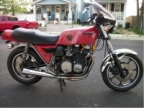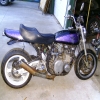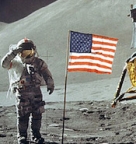Possible ceased brake caliper
- Thecreeper77
-
 Topic Author
Topic Author
- Offline
- User
-

Registered
- Posts: 26
- Thanks: 0
Possible ceased brake caliper
15 Jun 2011 15:03
Can brake calipers be fix\rebuilt or is best to bet new ones?
1980 KZ1000
2008 Versys
2008 Versys
Please Log in or Create an account to join the conversation.
- bountyhunter
-

- Offline
- User
-

Registered
- Posts: 7245
- Thanks: 338
Re: Possible ceased brake caliper
15 Jun 2011 15:13
I have seen rebuild kits for them.
1979 KZ-750 Twin
Please Log in or Create an account to join the conversation.
- btchalice
-

- Offline
- User
-

Registered
- Posts: 760
- Thanks: 7
Re: Possible ceased brake caliper
15 Jun 2011 15:26
is it not working or not releasing? a bad brake line can lock the brake
Terry Meyer / Wichita KS
76 kz900 w/1000 motor TWZTD
I am not driving too fast, I'm flying too low.
76 kz900 w/1000 motor TWZTD
I am not driving too fast, I'm flying too low.
Please Log in or Create an account to join the conversation.
- Thecreeper77
-
 Topic Author
Topic Author
- Offline
- User
-

Registered
- Posts: 26
- Thanks: 0
Re: Possible ceased brake caliper
15 Jun 2011 15:58btchalice wrote: is it not working or not releasing? a bad brake line can lock the brake
Not releaseing. Checked on it a while later and the lever had play again but didnt check to see if the caliper released.
1980 KZ1000
2008 Versys
2008 Versys
Please Log in or Create an account to join the conversation.
- martin_csr
-

- Offline
- User
-

Registered
- Posts: 7994
- Thanks: 1644
Last edit: 15 Feb 2013 10:11 by martin_csr.
Please Log in or Create an account to join the conversation.
- MFolks
-

- Offline
- User
-

Registered
- Posts: 6650
- Thanks: 541
Re: Possible ceased brake caliper
15 Jun 2011 16:16
Read this if you're considering changing brake fluids:
Re:KZ1000 rear caliper
BSKZ650 wrote:
Re:KZ1000 rear caliper
BSKZ650 wrote:
"seems to me like you should fix it right,"
I agree. The stuck piston will probably migrate back out and you'll have a sticky caliper again.
"I like to go with DOT 5 fluid when I rebuild the brakes, just a better product"/quote]
Maybe not better, but certainly different. An alarm went off in my brain, so I Googled this up.
"More than you ever wanted to know about brake fluid....
Brake fluid facts
By Steve Wall
As a former materials engineering supervisor at a major automotive brake system supplier, I feel both qualified and obligated to inject some material science facts into the murky debate about DOT 5 verses DOT 3-4 brake fluids. The important technical issues governing the use of a particular specification brake fluid are as follows:
Fluid compatibility with the brake system rubber, plastic and metal components.
Water absorption and corrosion.
* Fluid boiling point and other physical.
* Brake system contamination and sludging.
Additionally, some technical comments will be made about the new brake fluid formulations appearing on the scene.
First of all, it's important to understand the chemical nature of brake fluid. DOT 3 brake fluids are mixtures of glycols and glycol ethers. DOT4 contains borate esters in addition to what is contained in DOT 3. These brake fluids are somewhat similar to automotive anti-freeze (ethylene glycol) and are not, as Dr. Curve implies, a petroleum fluid. DOT 5 is silicone chemistry .
Fluid Compatibility
Brake system materials must be compatible with the system fluid. Compatibility is determined by chemistry, and no amount of advertising, wishful thinking or rationalizing can change the science of chemical compatibility. Both DOT 3-4 and DOT 5 fluids are compatible with most brake system materials except in the case some silicone rubber external components, such as caliper piston boots, which are attacked by silicon fluids and greases.
Water absorption and corrosion
The big bugaboo with DOT 3-4 fluids always cited by silicone fluid advocates is water absorption. DOT 3-4 glycol based fluids, just like ethylene glycol antifreezes, are readily miscible with water. Long term brake system water content tends to reach a maximum of about 3%, which is readily handled by the corrosion inhibitors in the brake fluid formulation. Since the inhibitors are gradually depleted as. Since the inhibitors are gradually depleted as they do their job, glycol brake fluid, just like anti-freeze, needs to be changed periodically. DOT 5 fluids, not being water miscible, must rely on the silicone (with some corrosion inhibitors) as a barrier film to control corrosion. Water is not absorbed by silicone as in the case of DOT 3-4 fluids, and will remain as a separate globule sinking to the lowest point in the brake system, since it is more dense.
Fluid boiling point
DOT 4 glycol based fluid has a higher boiling point ( 446°F) than DOT 3 ( 446 ºF), and both fluids will exhibit a reduced boiling point as water content increases. DOT 5 in its pure state offers a higher boiling point (500°F) however if water got into the system, and a big globule found its way into a caliper, the water would side at temperatures very much below freezing, let alone at 40° below zero, silicone's low temperature advantage won't be apparent. Neither fluids will reduce stopping distances.
With the advent of ABS systems, the limitations of existing brake fluids have been recognized and the brake fluid manufacturers have been working on formulations with enhanced properties. However, the chosen direction has not been silicone. The only major user of silicone is the US Army. It has recently asked the SAE about a procedure for converting from silicon back to DOT 3-4. If they ever decide to switch, silicone brake fluid will go the way of leaded gas.
Brake system contamination
The single most common brake system failure caused by a contaminant is swelling of the rubber components (piston seals etc.) due to the introduction of petroleum based products (motor oil, power steering fluid, mineral oil etc.) A small amount is enough to do major damage. Flushing with mineral spirits is enough to cause a complete system failure in a short time. I suspect this is what has happened when some car owners changed to DOT 5 (and then assumed that silicone caused the problem). Flushing with alcohol also causes problems. Older brake systems should be flushed only with DOT 3 or 4.
If silicone is introduced into an older brake system, the silicone will latch unto the sludge generated by gradual component deterioration and create a gelatin like goop which will attract more crud and eventually plug up metering orifices or cause pistons to stick. If you have already changed to DOT 5, don't compound your initial mistake and change back. Silicone is very tenacious stuff and you will never get it all out of your system. Just change the fluid regularly. For those who race using silicone fluid, I recommend that you crack the bleed screws before each racing session to insure that there is no water in the calipers.
New developments
Since DOT 4 fluids were developed, it was recognized that borate ester based fluids offered the potential for boiling points beyond the 446°F requirement, thus came the Super DOT 4 fluids - some covered by the DOT 5.1 designation -which exhibit a minimum dry boiling point of 500°F (same as silicone, but different chemistry).
Additionally, a new fluid type based on silicon ester chemistry (not the same as silicon) has been developed that exhibits a minimum dry boiling point of 590°F. It is miscible with DOT 3-4 fluds but has yet to see commercial usage."
I learned in the past thru others mistakes not to switch to DOT 5 in systems designed for DOT 3 or 4.
1982 GPZ1100 B2
General Dynamics/Convair 1983-1993
GLCM BGM-109 Tomahawk, AGM-129A Advanced Cruise Missile (ACM)
General Dynamics/Convair 1983-1993
GLCM BGM-109 Tomahawk, AGM-129A Advanced Cruise Missile (ACM)
Please Log in or Create an account to join the conversation.
- otakar
-

- Offline
- User
-

Registered
- Posts: 5073
- Thanks: 29
Re: Possible ceased brake caliper
15 Jun 2011 16:41
If you can move the caliper by hand than it is not the caliper but the master cylinder.
74 Z1-A stock
76 KZ-900 Totaly stock vice MAC pipe
77 KZ-1000A stock
78 Z1-R 100%MINT 500 original Mi.
78 Z1-R Yoshi 1103 kit stage 1 cams Yoshi pipe. Etc
79 KZ-1300 (1400)
80 KZ-1300
81 Scratch built GPz1150R
82 KZ1000
76 KZ-900 Totaly stock vice MAC pipe
77 KZ-1000A stock
78 Z1-R 100%MINT 500 original Mi.
78 Z1-R Yoshi 1103 kit stage 1 cams Yoshi pipe. Etc
79 KZ-1300 (1400)
80 KZ-1300
81 Scratch built GPz1150R
82 KZ1000
Please Log in or Create an account to join the conversation.
- Patton
-

- Offline
- KZr Legend
-

Registered
- Posts: 18567
- Thanks: 2103
Re: Possible ceased brake caliper
15 Jun 2011 22:14 - 15 Jun 2011 22:16Thecreeper77 wrote:btchalice wrote: ...Not releasing. Checked on it a while later and the lever had play again but didn't check to see if the caliper released.
Where dealing with the rear brake ---
If not already done, would adjust the brake push-rod to assure there's some gap between it and the piston while the brake is in relaxed position.
Absent the gap, brake application may heat the fluid which expands to allow the discs to drag against the rotor (akin to dragging the brakes) and soon the brake locks.
Be careful in this situation, because the rotor may be fire-hot.
May release some fluid to unlock the pads' clamping hold onto the rotor.
Then best to avoid using the rear brake until the push-rod gap is adjusted on a cold system.
Good Fortune!
1973 Z1
KZ900 LTD
KZ900 LTD
Last edit: 15 Jun 2011 22:16 by Patton.
Please Log in or Create an account to join the conversation.
Moderators: Street Fighter LTD
